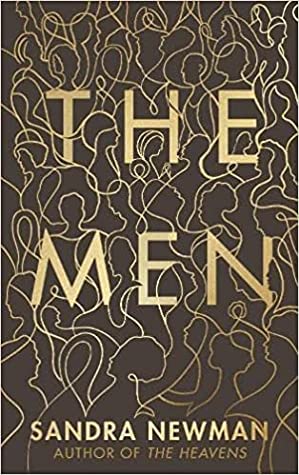They ran in a landscape where not a stick was alive, not a floating seed. The air was thick with dust or rain that glinted like cartoon radiation. There were forests of shattered leafless trees and wetlands denuded of vegetation, where the water was thick with plastic trash. In a few clips, a half-city stood on the horizon, a skyline of partial buildings that appeared to have been gnawed by fire. Some places had entirely lost the contours of our world… We understood: this was a future world in which the men had never disappeared. It was the hell to which we would have been condemned, the Earth they would have made.

Lines like these might make you think that what we are dealing with here is a classic alternate world dystopia in the feminist mode. You would be wrong. Sandra Newman’s The Men is a radical departure from tradition, a provocative critique of the feminist utopia and a challenge to easy thinking. If more science fiction were this original, our literary environment would immediately become more interesting, and more dynamic.
Jane Pearson is a damaged person. In her earlier life as a ballet prodigy she was groomed by the mentor she idolised to perpetrate abuse on teenage boys. Demonised by a public hungry for scandal, the life she eventually builds for herself is very different from the one she previously imagined. Married to Leo and mother to Ben, Jane’s inner restlessness is merely a precursor to the bewilderment and incomprehension that is about to destroy her world for a second time.
One evening in late August, at 7:14 precisely every human being with a Y chromosome disappears from the world. Aeroplanes, suddenly pilotless, drop from the sky; patients die on operating tables; factories grind to a halt. Women all over the world find themselves widowed, orphaned, homeless, freed, bereft. In the weeks and months that follow, a new world order begins to assert itself. A key player in the new politics is Evangelyne Moreau, a woman with a remarkable mind whose family were wiped out in an act of brutal police violence. Jane knows Evangelyne from college. The two almost became lovers, but Jane ultimately chose Leo. As the world shifts and changes about her, Jane journeys across the country in search of Evangelyne and the truth of what she felt those many years before.
Meanwhile, something else is happening, something disturbing. Videos are appearing online, a series of cryptic film clips entitled simply The Men. In them, armies of lost men march through a world that turns increasingly strange, increasingly depleted. And for many of the women watching, these are men they know. The Men quickly becomes an addiction, a form of mass hypnosis. But are the men real, or CGI fakes? What do the films mean and what do they point towards? For many women, the disappearance of the men is a chance at a new beginning. For others it ushers in a form of stasis, a reality that is ultimately as discomfiting as the world glimpsed in the violent film clips they are watching online.
For Evangelyne Moreau, The Men is more sinister still, a portent of her own destruction. Once again, she asks Jane to make a choice. But is this truly a choice that is Jane’s to make?
From Herland to The Female Man, from Maul to The Power, feminist utopia has formed an important branch of science fiction, encompassing some of its boldest and most experimental ideas. The Men is an important and brilliant addition to the canon, not least in the way it interrogates what has gone before. The questions Newman poses are difficult to answer: would a world without men truly be more equal, more peaceful, more rational? How much, in the end, would we miss them? What is a man, even, and how much, if at all, does gender determine our identity? How far would we be prepared to sacrifice the safety of others in pursuit of our own desires?
The Men is that rare thing, a novel of ideas that pays equal attention to language, character and form. The eerie surrealism of the video sequences generates a sense of mystery and foreboding that is impossible to shake; like the women permanently hunched in front of their screens, we find it impossible to look away, even as the scenes turn darker and increasingly violent. The raw intelligence of this book, its brutal honesty makes The Men a bracing antidote to the more anodyne brand of supposedly political SF that in reality is little more than crowd-pleasing. Newman handles questions of politics, gender, race and philosophy with skill and compassion without succumbing to the platitudes of fashionable discourse or the temptation of providing comfortable answers.
And she can write. At a sentence level, Newman’s prose is fiery, passionate, poetical – in short, a joy. If science fiction’s core directive is to provoke, to interrogate established assumptions, most of all to re-imagine then it is writers like Newman that prove that science fiction as a mode of literature still has a future.